Джон Фаулз - The Tree
Здесь есть возможность читать онлайн «Джон Фаулз - The Tree» весь текст электронной книги совершенно бесплатно (целиком полную версию без сокращений). В некоторых случаях можно слушать аудио, скачать через торрент в формате fb2 и присутствует краткое содержание. Жанр: Современная проза, на английском языке. Описание произведения, (предисловие) а так же отзывы посетителей доступны на портале библиотеки ЛибКат.
- Название:The Tree
- Автор:
- Жанр:
- Год:неизвестен
- ISBN:нет данных
- Рейтинг книги:5 / 5. Голосов: 1
-
Избранное:Добавить в избранное
- Отзывы:
-
Ваша оценка:
- 100
- 1
- 2
- 3
- 4
- 5
The Tree: краткое содержание, описание и аннотация
Предлагаем к чтению аннотацию, описание, краткое содержание или предисловие (зависит от того, что написал сам автор книги «The Tree»). Если вы не нашли необходимую информацию о книге — напишите в комментариях, мы постараемся отыскать её.
The Tree — читать онлайн бесплатно полную книгу (весь текст) целиком
Ниже представлен текст книги, разбитый по страницам. Система сохранения места последней прочитанной страницы, позволяет с удобством читать онлайн бесплатно книгу «The Tree», без необходимости каждый раз заново искать на чём Вы остановились. Поставьте закладку, и сможете в любой момент перейти на страницу, на которой закончили чтение.
Интервал:
Закладка:
Children are notoriously blind towards their parents, and nowhere more than in failing to see the childlike in them — the inescapable conditioning of the past. In the beginning we all try to attribute to our parents what used to be attributed to Cod: limitless power to intervene, indisputable wisdom. The theological concept was clearly no more than an idealization of this. Its flaw is the inevitable confusion between authority and free will — the jointly held delusion that possessing one must entail possessing the other. I am sure in retrospect that the decision to return to suburbia was well beyond my father’s free will; he could not not do it, any more than he could prevent that terrible memory from the Great War bubbling to the surface when he lay on his deathbed. But I did at that moment guess what had truly inspired the retreat from Devon.
It was not financial caution or love of suburbia in itself, it was not anything but his trees and the sanctuary they offered. . in no sense, in that minute garden, a physical sanctuary, but a kind of poetic one, however banal the surroundings: a place he could control, that was different from all around it, not least in its huge annual yield of fruit. It stood in effect as the very antithesis of a battlefield, including the metaphorical one of wild nature; and of course it could not be reproduced anywhere else, since he had personally created and cherished it. We lived in Devon surrounded by farm orchards, but what he needed was the fruits of his own cultivation, the knowledge he had gained of every habit, every whim, every fruiting spur (all infertile shoots were ruthlessly extirpated) of each of his score of trees. He had himself been severely pruned by history and family circumstance, and this was his answer, his reconciliation to his fate — his platonic ideal of the strictly controlled and safe, his Garden of Eden. All my adolescent and older loathing of its social and physical environment — and my mother was on my side — can have only deepened his attachment.
Those trees were in fact his truest philosophy, and his love of actual philosophy, the world of abstract ideas, was essentially (like his love of trenchant lawyers, with secateurs in their mouths) no more than a facet of his hatred of natural disorder. Good philosophers prune the chaos of reality and train it into fixed shapes, thereby forcing it to yield valuable and delicious fruit or at least in theory. One of my father's heroes was Bertrand Russell, for whose incisive intellect and more popular philosophical works he had the greatest admiration, yet he had the very reverse for Russell’s later political attitudes. It was almost as if he had let one of his cordons grow as it liked, a blasphemous breaking of his own eleventh commandment: Thou shalt prune all trees.
I had always seen this as the great difference between us; and puzzling, genetically mysterious. What he abhorred, I adored. My own ‘orchards' were, from the moments I first knew them, the forgotten and increasingly deserted copses and woods of the West of England, and later, of France. I still grow some of my father’s favourite apples, such as Iames Grieve, and some of my own, such as the smoky King of the Pippins, but I won’t use sprays and don't prune properly with no excuse, since he taught me the rudiments of that art. Yet I see now that our very different attitudes to these things were really the same phenomenon, the same tree. His refusal to be moved by what moved me in nature was perhaps largely a product of his own conditioning; but its function (without my realizing it, of course) was very similar to what pruning does for young fruit trees — that is, to direct their growth and determine their future.
Successful artistic parents seem very rarely to give birth to equally successful artistic sons and daughters, and I suspect it may be because the urge to create, which must always be partly the need to escape everyday reality, is better fostered — despite modern educational theory — not by a sympathetic and 'creative' childhood environment, but the very opposite, by pruning and confining natural instinct. (Nine-tenths of all artistic creation derives its basic energy from the engine of repression and sublimation, and well beyond the strict Freudian definition of those terms.) That I should have differed so much from my father in this seems to me in retrospect not in the least a matter for Oedipal guilt, but a healthy natural process, just as the branches of a healthy tree do not try to occupy one another’s territory. The tree in fact has biochemical and light-sensitive systems to prevent this pointless and wasteful secondary invasion of one branch's occupied space by another. The fact that the two branches grow in different directions and ways does not mean that they do not share a same mechanism of need, a same set of deeper rules.
It is immaterial that I do not cultivate trees in any sense that my father would recognize or could approve. I think I truly horrified him only once in my life, which was when, soon after coming into possession, I first took him around my present exceedingly unkempt, unmanaged and unmanageable garden. I had previously shocked him by buying a derelict farm; but its thirty acres of scrub and rough pasture were sanity (at least I let the keep and got some token yield from it) beside this new revelation of folly. He thought it madness to take on such a “jungle', and did not believe me when I said I saw no need to take it on, only to leave it largely alone, in effect to my co-tenants, its wild birds and beasts, its plants and insects. He would never have conceded that it was my equivalent of his own beautifully disciplined apples and pears, and just as much cultivated, though not in a literal sense. He would not have understood that something I saw down there just an hour ago, at this moment I write — two tawny owlets fresh out of the nest, sitting on a sycamore branch like a pair of badly knitted Christmas stockings and ogling down at this intruder into their garden — means to me exactly what the Horticultural Society cups on his sideboard used to mean to him; a token of order in unjust chaos, the reward of perseverance in a right philosophy. That his chaos happens to be my order is not, I think, very important.
He sent me two cordon pear trees to plant, soon after that first visit. They must be nearly fifteen years old now; and every year, my soil being far too thin and dry for their liking, they produce a few miserable fruit, or more often none at all. I would never have them out. It touches me that they should so completely take his side; and reminds me that practically everyone else in my life — even friends who profess to be aturalists — has also taken his side; that above all the world in general continues to take his side. No fruit for those who do not prune; no fruit for those who question knowledge; no fruit for those who hide in trees untouched by man; no fruit for traitors to the human cause.
A few years ago I stood in a historic place. It was not a great battlefield, a house, a square, the site of one famous event, but the site only of countless very small ones-a neat little eighteenth-century garden, formally divided by gravel walks into parterres, with a small wooden house in one corner where the garden's owner had once lived. There is only one other garden to compare with it in human history, and that is the one in the Book of Ge esis, which never existed outside words. The one in which I stood is very real, and it lies in the old Swedish university town of Uppsala. Its owner was the great warehouse clerk and indexer of nature, Carl Linnaeus, who between 1730 and 1760 docketed, or attempted to docket, most of animate being. Perhaps nothing is more moving at Uppsala than the actual smallness and ordered simplicity of that garden (my father would have loved it) and the immense consequences that sprung from it in terms of the way we see and think about the external world. It is something more than another famous shrine for lovers of nature, like Selborne or Coate Farm or Walden Pond. In fact, for all its air of gentle peace, it is closer to a nuclear explosion, whose radiations and mutations inside the human brain were incalculable and continue to be so: the place where an intellectual seed landed, and is now grown to a tree that shadows the entire globe.
Читать дальшеИнтервал:
Закладка:
Похожие книги на «The Tree»
Представляем Вашему вниманию похожие книги на «The Tree» списком для выбора. Мы отобрали схожую по названию и смыслу литературу в надежде предоставить читателям больше вариантов отыскать новые, интересные, ещё непрочитанные произведения.
Обсуждение, отзывы о книге «The Tree» и просто собственные мнения читателей. Оставьте ваши комментарии, напишите, что Вы думаете о произведении, его смысле или главных героях. Укажите что конкретно понравилось, а что нет, и почему Вы так считаете.

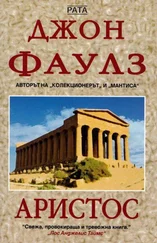
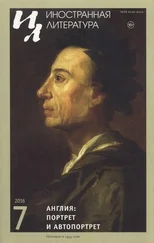
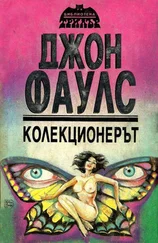
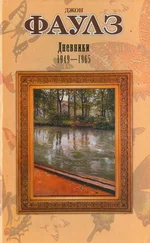

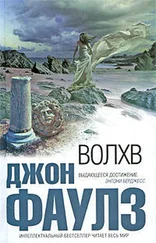

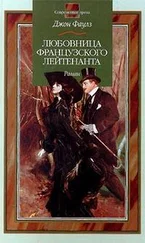
![Джон Фаулз - Вылазка в действительность [антология]](/books/431648/dzhon-faulz-vylazka-v-dejstvitelnost-antologiya-thumb.webp)
![Джон Фаулз - Мантисса [litres]](/books/438194/dzhon-faulz-mantissa-litres-thumb.webp)